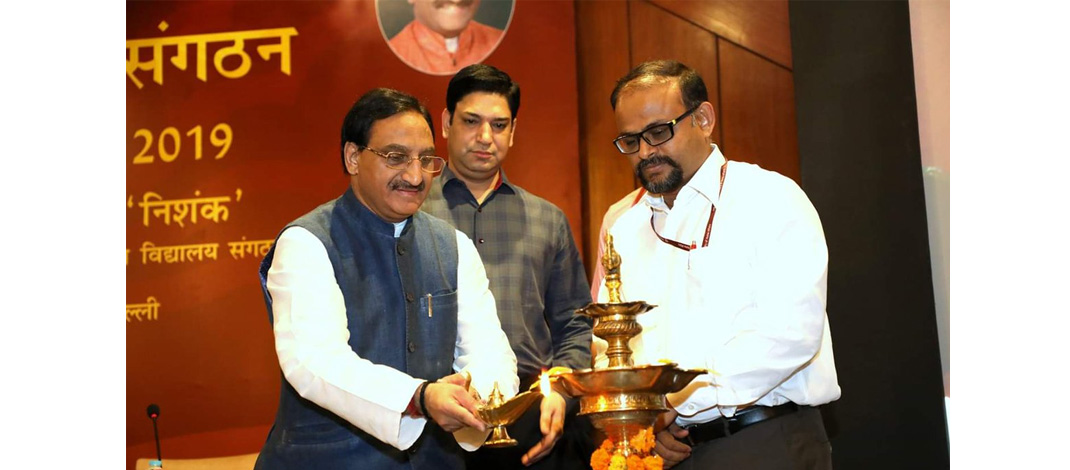New Delhi : The Central Government has introduced a 4-year Integrated Teacher Education Programme (ITEP) for pre-service training, to offer graduation with certain specializations built into it namely Primary and Secondary Education. In this regard, a Gazette Notification dated 29th March, 2019 has been published and applications have been invited from 3rd June, 2019.
Further, for in-service training of teachers, school heads and other functionaries, at the elementary level, approval has been given for an Integrated Teacher Training Programme to be conducted through National Council of Educational Research and Training (NCERT) and National Institute of Educational Planning and Administration (NIEPA), in all States and UTs.
The Central Government has taken several initiatives to improve the quality of education:
(i). The Central Government has launched an Integrated Scheme for School Education – Samagra Shiksha, from 2018-19 which subsumes the erstwhile centrally sponsored schemes of Sarva Shiksha Abhiyan (SSA), Rashtriya Madhyamik Shiksha Abhiyan (RMSA) and Teacher Education (TE). Under Samagra Shiksha, funds are given to all States and UTs for various interventions to improve the quality of education such as training of in-service teachers, headmasters and principals, remedial teaching for academically weaker students, provision of library grants to schools, ICT and digital initiatives, strengthening of teacher education institutions, Rashtriya Avishkar Abhiyan, Padhe Bharat Badhe Bharat, etc.
(ii). In order to focus on quality education, the Central rules to the Right of Children to Free and Compulsory Education (RTE) Act have been amended to include reference on class-wise, subject-wise Learning Outcomes for all elementary classes. The National Council of Educational Research and Training (NCERT) conducted a National Achievement Survey, under which learning outcomes of students were evaluated, through a District level sampling and gaps were identified.
(iii). Government of India has decided to participate in the Programme for International Students Assessment (PISA) to be conducted by the Organization for Economic Cooperation and Development (OECD) in 2021.
(iv). Approval has been given for conducting a Census based audit called Shagunotsav of all government and government aided schools in all States and UTs. Further, in 2019-20 approval has been given for conducting a School Based Assessment (SBA) of all elementary stage students, to evaluate learning outcomes.
(v). The online D.El.Ed. course was started from 3rd October, 2017 and 9,58,513 teachers have successfully completed the training.
(vi). MHRD has designed a 70 indicators based matrix Performance Grading Index (PGI) to grade the States and UTs. To collect timely and accurate data, an Educational Management Information System called UDISE+(UDISE plus) has been launched in 2018-19.
(vii). In 2019-20, approval has been given for setting up Youth and Eco Clubin all Government Schools across the country. In order to experience and celebrate the rich cultural diversity of India and to encourage experimental learning, Rangotsav was organized in schools in 2018-19.
All the above mentioned quality interventions are provided at par to schools of rural and urban areas. Additionally, the Central Government has issued advisories to States and UTs for redeployment of teachers and to ensure that all school teachers should spend adequate time serving in rural areas through a transparent policy.
The information was given by the Union Minister for Human Resource Development, Dr. Ramesh Pokhriyal ‘Nishank’ in a written reply in the Lok Sabha today.

